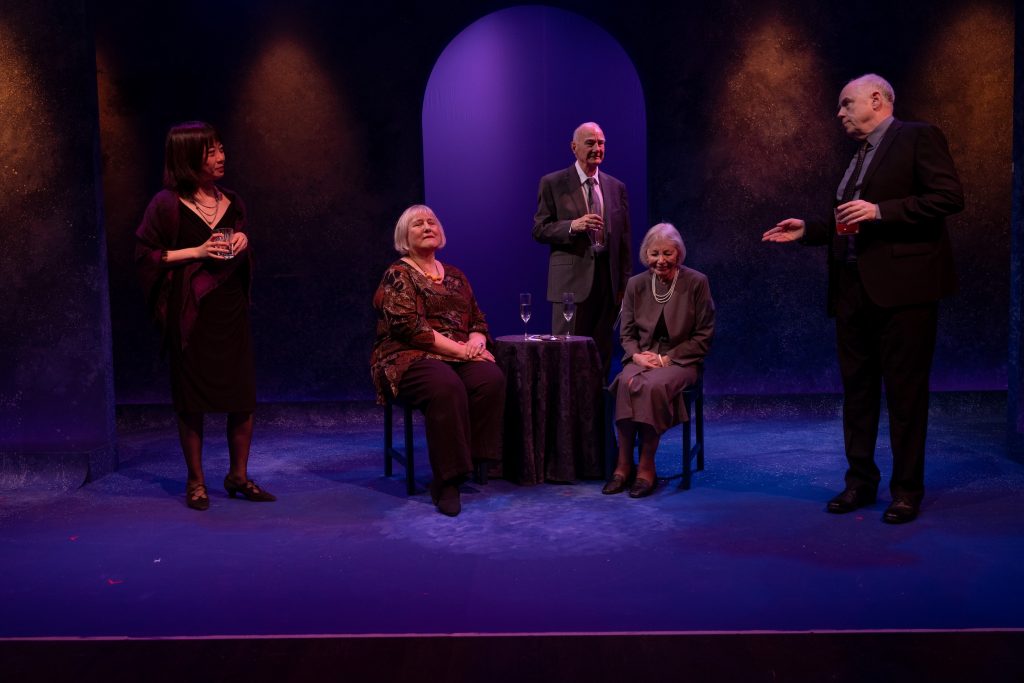
Set design: Glenn MacDonald. Lighting design: John Webber. Costume design: Barbara Clayden. Credit: Javier Sotres
Performing Arts Lodge (PAL), 581 Cardero Street, to May 25, 2025
Tickets from $35 at www.westerngoldtheatre.org
Posted May 11, 2025
Ah, lovely.
Here We Go, by Caryl Churchill, caught me at a time in my own life such that I found myself almost holding my breath throughout. On a very personal note, my sister died last Sunday – a week before Mother’s Day – and, an octogenarian myself, I think about my own passing not infrequently and the time when “here we go” is the message for me.
In the first part of this forty-five minute piece, produced by Western Gold Theatre, we eavesdrop at a memorial service of some fellow. Snippets of conversation. “Oh, when he was young”. “Language”. “Cats.” “Dogs.” “He wasn’t the type who planned”. We come almost, but never quite, to know him through the eyes of his friends. There are contradictions and corrections. “No, no.” Even a little adversarial, as if, during his lifetime, there had been competitive or negative feelings. His friends didn’t agree on everything. Remarkably, it’s sometimes quite funny. Does it all come down to who cares for our cat when we pass into the great unknown?
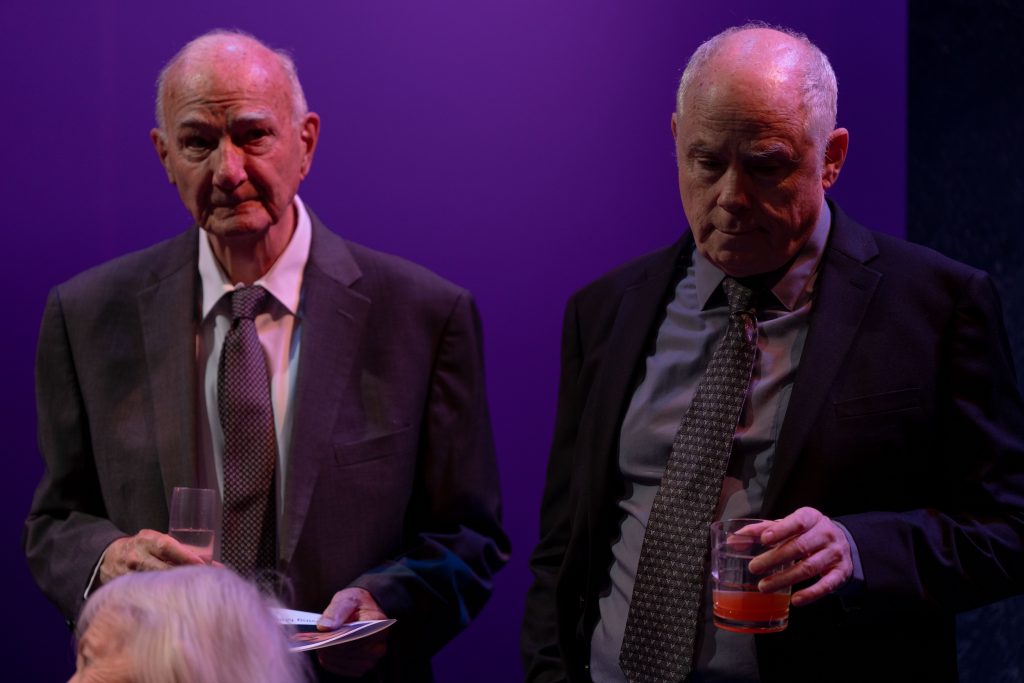
Credit: Javier Sotres
One by one, each of the six characters (played by David Bloom, Bernard Cuffling, Rosy Frier-Dryden, Richard Newman, Kate Robbins and Peihwen J. Tai) tell us when they died: “I died the next day, hit by a motor bike”. “I die five years later, stabbed by an intruder.” The “here we go” moment comes to all of them. And yet, there is nothing here that is bleak; it’s thoughtfully meditative.
The middle section of the play features one character, in a floppy blue hospital gown, who finds himself at “the pearly gates” – maybe. “Maybe there is a hell”. “How much good did I do?” “How careless I was when I was young.” Sound familiar? The night I attended – and I’ll talk about that later – the character was played by Richard Newman. Newman played the recently deceased as neither particularly brave nor especially terrified but definitely curious about the possibility of being recycled as a “bird” or “a rabid dog”. And he quips, “Now I’ve really got no energy.” That’s hilarious.
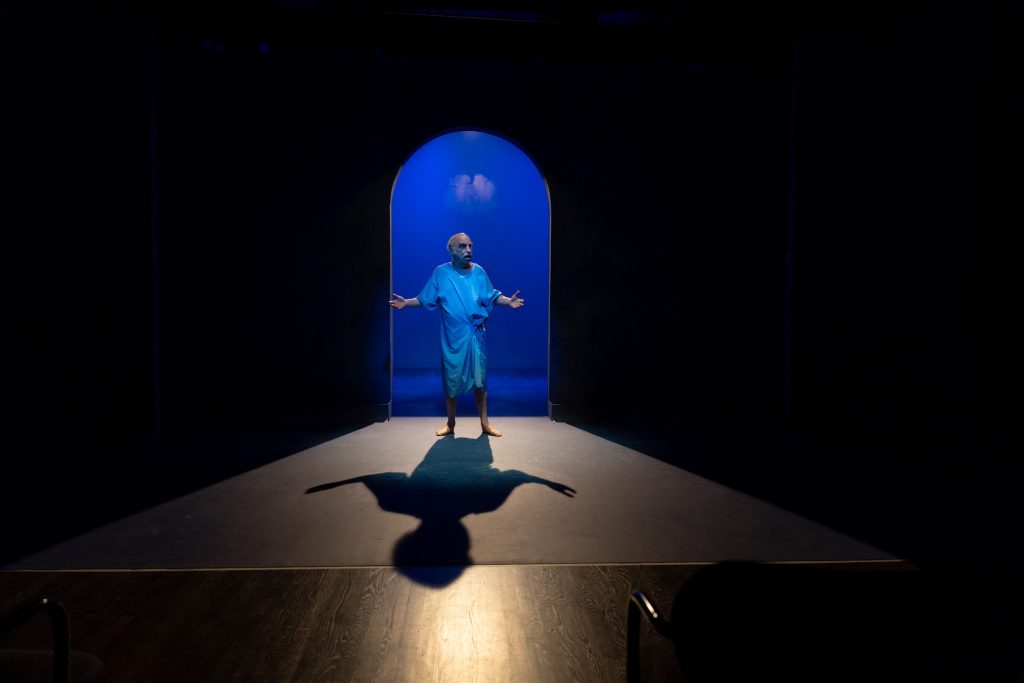
Credit: Javier Sotres
Part three got me coming and going: an elderly woman in a wheelchair being cared for by a young attendant. Being dressed, undressed, moved into the sunshine, out of the sunshine. And repeat. And repeat. Kate Robbins was the woman in the wheelchair and Peihwen J. Tai, the young caregiver, the night I saw the show. The good part was the gentle care of the younger woman: the light touch on the shoulders, the careful, unrushed putting on and taking off of the older woman’s baggy, far-from-fashionable clothing. The sad part was, of course, the tedium of the old woman’s life, the smallness of it, the ennui.
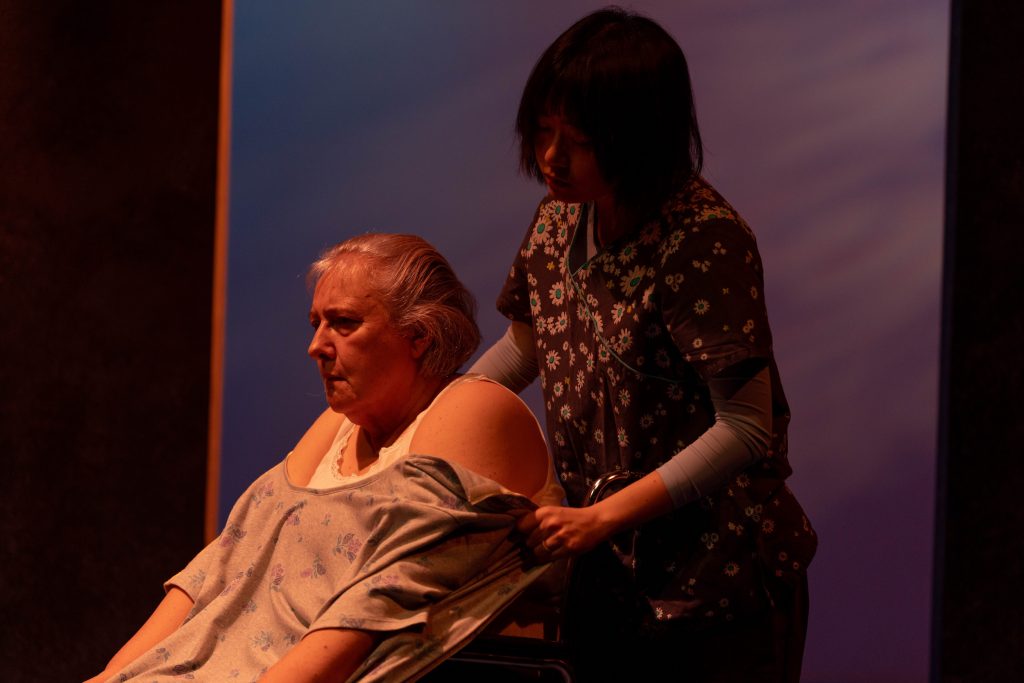
Credit: Javier Sotres
In keeping with Churchill’s experimentation with form, director Kathryn Bracht and, I imagine, Western Gold’s artistic director Tanja Dixon-Warren, chose to have the cast of six share roles and perform on a rotating basis. Why? Well, apart from Tai, these are “old folx” (to quote Dixon-Warren) and health emergencies happen and so does simple fatigue. You would not know it from seeing it. What you get are performers at the top of their game with a lifetime of experience backing them up. It’s a rare opportunity to see these fine actors together on stage.
I loved this production and I loved Glenn MacDonald’s set: midnight blue walls, lightly speckled with white, and a blue, centre-stage arch: the gateway to the beyond. John Webber’s lighting is sublime – especially in the monologue section. It made me think of the Mystery Plays with their huge, gaping maws of death stage left and right. Here, the blue arch is mysterious, surreal, cosmic, an invitation to the unknown.
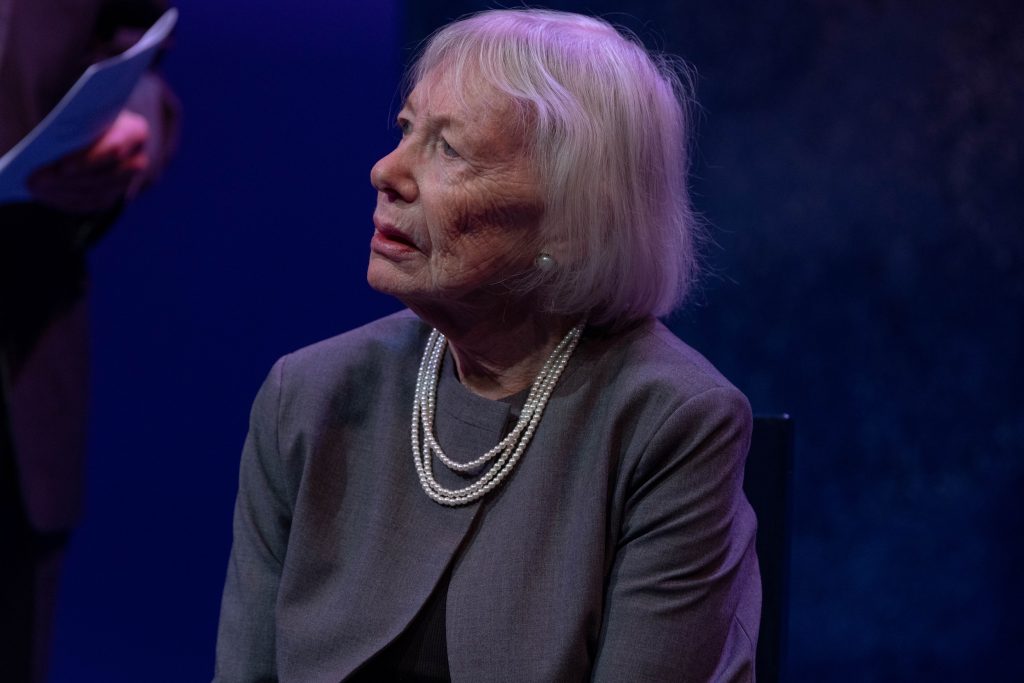
Credit: Javier Sotres
Here We Go is not for everyone. It’s not a play in the generally accepted sense. The first act is all fractured language. Seldom a complete sentence. The second part is a monologue. The third part is silent. And yet – and here I’m reminded of Beckett – there is the overriding understanding that we are all travelling this road together. Beckett wrote in Waiting For Godot, “We are born astride the grave.” We are born. We die. It’s all a mystery. And there is, if you’re lucky, much joy and lots of laughter along the way.
Here We Go. You should go.

